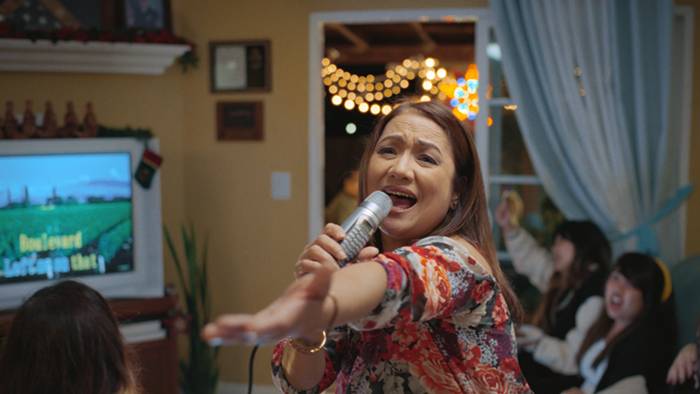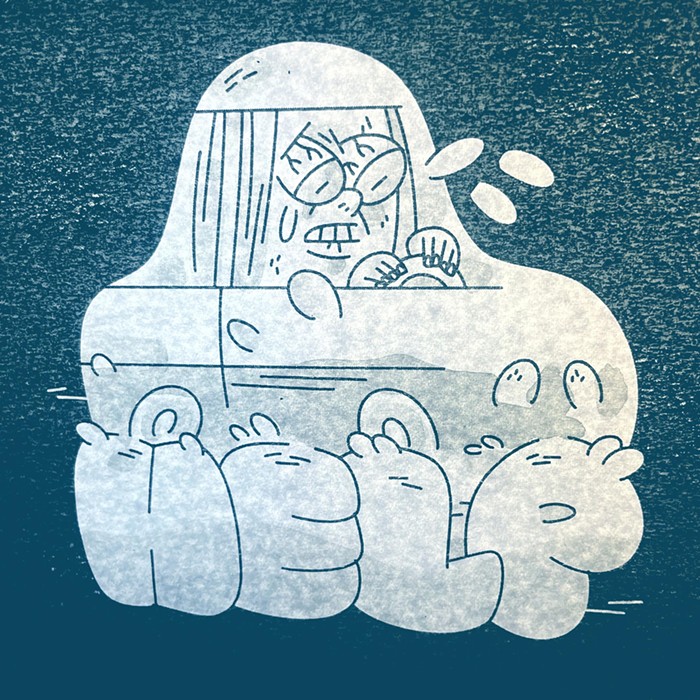
According to the Washington Post, 2018 was “The Year of Online Hate.”
This was a headline published by the paper at the end of December. The accompanying article was about seven Americans who’ve been subjected to a barrage of vitriol by strangers online after they publicly spoke out about causes they believed in. Among those profiled were Cameron Kasky, a student who survived the school shooting in Parkland, Florida; CNN reporter Oliver Darcy, who was targeted by Alex Jones and his army of conspiracy theorists; Rachel McKinnon, a trans athlete who won a major women’s track cycling event; and Michele Dauber, a Stanford Law professor who started a recall effort against the judge who sentenced college swimmer Brock Turner to just six months in prison for assaulting an unconscious woman.
After these peoples’ names entered the public arena, all were inundated by hate online. Dauber got so much hate mail that she started printing it out and taping it to her office door. “I wanted people to see, here’s this rape threat. Here’s this person threatening to cut my throat,” she told the Post. At one point, she even received an envelope that contained white powder in the mail.
It’s not hard to see why Dauber was afraid for her safety, and there’s nothing okay about sending people threats or hate mail or poison just because you disagree with them on rape sentencing or gun control or anything else. It’s vile behavior and doesn’t just terrorize individuals, it has a stifling effect on speech. Why speak up at all when you may become a target? Still, when I was reading the Washington Post article I noticed a few odd things: For one, at least two of the seven people profiled have been not only the victims of online pile-ons but also their instigators. Take, for instance, Rachel McKinnon, a trans cyclist who was flooded with hate after winning a track-cycling championship against cis women. After a tweet about her win went viral, McKinnon told the Post that “The negative messages outweighed the positive by about 3,000 to 1.”
And yet, only a few months after her own experience being mobbed, McKinnon instigated a Twitter pile-on against tennis legend and longtime gay activist Martina Navratilova for tweeting, “You can’t just proclaim yourself a female and be able to compete against women.” McKinnon disagreed, called Navratilova transphobic, and the Twitter mob started foaming at the mouth. In the midst of this, Navratilova deleted her tweet and apologized, but in the days that followed, articles accusing Navratilova of bigotry and transphobia were all over the queer press.
Michele Dauber, the Stanford Law professor, started a pile-on of her own when she tweeted a defense of Brock Turner written by his childhood friend Leslie Rasmussen. Then 20 years old and trying to make a career in music, Rasmussen had served as a character witness for Turner and wrote the letter on request from the court. After Dauber posted the letter, New York Magazine picked it up, the story spread, and Rasmussen wasn’t just mobbed online, her band was actually dropped by festivals and venues. The Washington Post didn’t mention this or Dauber’s role in it.
I noticed something else strange about the article: Everyone featured was targeted by their ideological opponents. Cameron Kasky, for instance, an organizer of March for Our Lives, was sent vile messages from NRA supporters. Ricky Stone, a gay teen who came out on Instagram, was targeted by homophobes. Oliver Darcy was targeted by Trump supporters, those who think the media is the "enemy of the people." While I don’t want to diminish what happened to any one of these people—being the target of hate never feels good, and some of the threats against them were surely terrifying—if getting hate from one’s ideological opponents has the power to wound, what happens when one gets hate from your ideological allies?
I’ve taken heat from both sides, and while hate mail and mean tweets from my ideological opponents are annoying, they’re also easy to dismiss. I criticize Trump, someone with a giant red X in their Twitter bio calls me a cunt, and I glance at it and move on. It’s like a fly buzzing around your head—you swat it away and soon forget its existence. But when I criticize my own side—for being, at times, intolerant and dogmatic—the mob is made up of people I agree with on the big issues (climate change exists, health care is a human right, Trump is a fool and a danger) but disagree with on some small specifics. In this case, the buzzing doesn’t just annoy; it actually stings. (Or, at least, it used to. Turns out, you can become inured to almost anything.)
Had the Washington Post profiled people who’ve been dragged by their own side, it would have been a more interesting and complex story about the consequences of online hate and public shame. They could have, for instance, talked to Kat Rosenfield, a writer who calls what happened to her an “adventure in Unpersoning.”
The Unpersoning started in 2016 after Rosenfield defended Keira Drake, an author whose debut young adult novel, The Continent, took the YA universe by storm—and not necessarily in a good way. The book, which was reportedly inspired by stories of civilians dying in Iraq, was set in “a brutal realm where privileged tourists, safe in their heli-planes, gaze down with detached curiosity at the native people slaughtering each other below," as writer Lila Shapiro described it in Vulture. "After a heli-plane crashes, Drake’s narrator is saved by one of the natives from an attempted rape at the hands of an enemy tribe, and she, in turn, saves his people from ruin.”
There was a lot of buzz before the book was even out. Drake was reportedly given a three-book deal and a six-figure advance by Harlequin. Her publisher embarked in a major press campaign for the book, thinking it had bestseller potential, but Drake’s fortune turned before the book even came out after an author and influencer in the YA community accused Drake of cultural appropriation and pushing a white savior narrative. On Twitter, the critic called the book a “racist garbage fire,” and a mob started to form. Few people jumping on had actually read the book, which wasn’t yet on shelves, but that hardly mattered. It wasn't long before there was a petition circulating to delay the release of the book's publication until the problematic aspects of the text were addressed. Plenty of professional writers, along with readers, decided to sign it.
Kat Rosenfield, who has published two YA books herself, watched as this unfolded online, and she was troubled by the reaction. “It just didn't occur to me that it was a controversial thing to say, ‘Hey, as an artist, I don't think we should be campaigning to suppress other artists' work.’ But people seemed absolutely enraged by it.” This preemptive outrage seemed dangerously close to censorship, and Rosenfield said so. And then the mob turned its eye onto her.
Rosenfield says she was mobbed for two or three days before people moved on. Then, a couple of months later, the same critic who started the Drake pile-on alleged on Twitter that Rosenfield had created an anonymous account to harass women of color. This was patently false, Rosenfield had done no such thing, but the misinformation spread regardless. A week later, Rosenfield’s accuser deleted her tweets, but the rumors didn’t die when the tweets did. “It was incredibly calculated,” Rosenfield told me. “Nobody could trace the rumor back to its source so it was just known that I'd done this ghastly, bullshit thing.” Her reputation was marred, she was kicked out of a writers' networking group, and colleagues with whom she had had friendly relationships disappeared. “It didn't ruin my career,” Rosenfield said, “but it definitely closed some doors and made me seriously rethink whether I wanted to keep publishing in that space.”
During this period, Rosenfield says she was despondent. “It was distressing on a basic human level to have someone try to hurt me that way. It's the most malicious thing I've experienced in my adult life.” But despite the consequences, now she says she’s more, not less, likely to speak up when she sees mobs forming, especially by her ideological allies. “I'd hate to see self-identified liberals abandon free expression as a core value just because it's unpopular with a shrieking minority of authoritarian jerks online,” Rosenfield says. “I try to publicly support people who are being mobbed, because really, nobody deserves that, and it doesn't accomplish anything.”
Still, something positive did come out of Rosenfield's experience: As a journalist, she started tracking online mobs in the YA community and wrote a fascinating and very well-received piece about another toxic controversy in the YA community.
Not everyone is as bullish about their time at the bottom of a dogpile. Jade (not her real name) is a 21-year-old student at Western Washington University who was targeted by her peers in 2017. It started after the university readmitted a student who had been convicted of sexual assault and spent 10 months imprisoned. Many members of the student body were unhappy with the school’s decision to readmit the student, including Jade and a number of her friends. Students organized a protest on campus, and on the Facebook page for the event, one of the organizers included an image that said, “My pussy grabs back.” This, it turned out, was a mistake.
The phrase—which was a reference to the leaked Access Hollywood tape of Donald Trump saying he grabs women by the pussy—was seen by some on campus to be transphobic or trans exclusionary because, according to them, some women have penises, not pussies. The Facebook discussion quickly became heated, with some arguing that the phrase was problematic and others arguing that it was necessary.
One student who supported the phrase happened to be a stealth trans woman, but when she spoke up, she was called a TERF (trans-exclusionary radical feminist) as well as transphobic. This student, a friend of Jade’s, “had two options at this point,” Jade told me. She could either “deal with being called ridiculous things or out herself as trans. She didn't want to do the latter.” Jade then defended her friend, and soon other students (Jade says they were “largely heterosexual, gender-conforming women”) put up posters around campus calling Jade and her friends “transphobic white feminists” by name. The irony here isn’t just that Jade’s friend was trans, but that Jade is a person of color.
All this was hard on Jade. She asked the school to take action or at least get the posters with her name on them taken down, but the school refused based on the students’ rights to free expression. “It impacted my life severely,” she told me. “I struggle with anxiety, and this made me afraid to even leave my apartment as my full name was published and I have heard accounts of women accused of being TERFs being physically assaulted.”
Jade thought about leaving WWU though ultimately decided to finish her time there. If she could take it all back, however, she says that she would. Sticking up for her beliefs was “not worth the emotional trauma it inflicted,” she says. “It took me months to feel safe again, and even then, I did not feel safe expressing any sort of opinion relating to gender and sex on campus.” Now, she says, she just wants to graduate and get out.
It's not hard to understand why people join online mobs. Quite simply, it's fun. It also brings us together. As journalist Mark Heid wrote recently on Medium, a number of studies show that “sharing negative attitudes with someone — and, in particular, sharing negative opinions about other people — seems to be among the quickest and most effective ways for two strangers to form a bond. If you want to cozy up to someone, there may be no better way to do it than to gossip about the people you both hate.”
But the consequences for those on the receiving end of that hate are real, and I’ve heard from dozens of people who’ve had an experience like Jade’s; people who’ve questioned some sacred cow and have been punished for it by those they otherwise consider ideological allies. This includes a lesbian porn star who was booted from her community after declining to have sex with a trans woman; a DSA member who was dragged after defending a party leader who’d previously worked with police unions; and a former Mormon who left the church after college. In the latter case, the Mormon expected he’d lose his community when he gave up his faith, but he was surprised, years later, when he was dogpiled by the ex-Mormon community for saying he didn’t think Joseph Smith was technically a pedophile. “I thought these were my people,” the ex-Mormon told me, “but I guess we can't disagree with each other. You have to toe the line, and that’s what that I left the church over.”
There’s nothing inherently liberal or conservative about online hate, and mobs happen on both the left and the right. It’s nonpartisan, it seems, this tendency to react to people who disagree with us online as though they are actually evil. But while this is rampant online, where these battles don’t happen as often is face to face. Social decorum still makes calling people “trash" in person more than a little bit awkward. The distance of a screen makes all that decorum, that civility, disappear. The internet turns disagreements into fights and individuals into hordes, gathering together to take someone, anyone, down. It’s terrible behavior on our part, and being mobbed, a form of public shaming, is so traumatizing that more than one person I spoke to about their experience mentioned considering suicide.
And yet, for all the anxiety, the depression, the broken friendships, and lost opportunities for work, for some people, there’s also an unexpected benefit to finding yourself mobbed by your side because it forces you to see some uncomfortable but important truths.
Molly Hodgdon, a feminist who says she grew up in “a very liberal household where the name Gloria Steinem would only be said with the utmost reverence and respect,” discovered this when studying criminology. After looking at the research, she realized that Steinem and many other feminists were pushing a model of sex work criminalization that ended up harming women. When Hodgdon would post about this online, advocating for total decriminalization of sex work, she says she would be “dogpiled by people insisting I was wrong and a supporter of the patriarchy for advocating for these policies that save women's lives and give sex workers control over their own bodies and work.” Her friends weren’t just being bullies; they were, based on empirical evidence, objectively wrong. This showed Hodgdon that her own tribe was failable.
“Like most people, I used to have this system of shortcuts where you just automatically believe whatever the other people in your tribe are saying,” she says. “Now I question and research and double-check every statement by everyone, regardless of lefty pedigree. It was crushing and confusing at first to experience this mass disillusionment but I'm so much better off for it now. I'm more likely to look beyond eloquent, righteous words to find the evidence (or lack thereof) underlying them.”
I feel the same way. Like Hodgdon, I’ve learned from my own time under the dogpile that just because the mob is made up of progressives doesn’t mean that it's right. Now, I consider the argument instead of who is making it. I’m less tribal, less prone to confirmation bias, and more open to a diversity of thought. But I didn’t learn this by being dragged by my enemies; I learned it by being dragged by my friends.



















